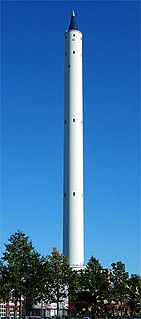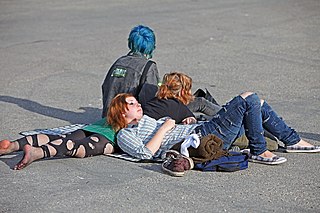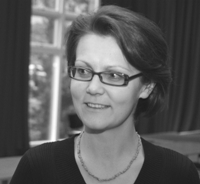This article needs additional citations for verification .(January 2008) (Learn how and when to remove this template message) |
The Research Centre for East European Studies (Forschungsstelle Osteuropa) at the University of Bremen was founded in 1982. Under the directorship of Professor Wolfgang Eichwede, it has since then carved its own distinctive niche within the German academic community through an intensive study of recent developments in the culture and society of Central and East European countries.

The University of Bremen is a public university in Bremen, Germany, with approximately 23,500 people from 115 countries. It is one of 11 institutions which were successful in the category "Institutional Strategies" of the Excellence Initiative launched by the Federal Government and the Federal States in 2012. The university was also successful in the categories "Graduate Schools" and "Clusters of Excellence" of the initiative.
Contents
- Structure
- Current projects
- Publications
- International Partner Organizations
- References
- External links
Following the collapse of Communist rule, the institutes's research concentrated both on the cultural and socio-political continuities across the period of upheaval, and on the newly emerging potential for innovation in political and economic culture and cultural identity. In contrast to the predominantly economic approach to the transformation taking place in Eastern and Central Eastern Europe, the Research Centre places the traditions and potential of the region at the centre of attention. The institute endeavors to enable an understanding of the countries from the inside, and in this way make a genuine contribution to the drawing together of Europe.

Cultural identity is the identity or feeling of belonging to a group. It is part of a person's self-conception and self-perception and is related to nationality, ethnicity, religion, social class, generation, locality or any kind of social group that has its own distinct culture. In this way, cultural identity is both characteristic of the individual but also of the culturally identical group of members sharing the same cultural identity or upbringing.
Even before the radical political changes this was one of the tasks of the Research Centre: during the 1980s, it gave attention above all to the appearance of independent artistic and intellectual creativity. The focus on dissident culture was intertwined with the aspiration to track informal tendencies and intellectual approaches which could give an insight into the societies of the region. Alongside its research, the institute was able to build up a comprehensive and internationally renowned archive of Samizdat literature. It contains banned or unofficial artistic, literary and academic writings from Poland, the Soviet Union, Czechoslovakia, Hungary and the GDR (East Germany). The Russian collection also includes the private archives of leading Russian figures. A third branch of the institutes's activity is public work in the form of cultural and political consultancy in Germany and abroad.

A dissident, broadly defined, is a person who actively challenges an established doctrine, policy, or institution. In a religious context, the word has been used since 18th century, and in the political sense since 1940, coinciding with the rise of totalitarian systems, especially the Soviet Union.

Samizdat was a form of dissident activity across the Eastern Bloc in which individuals reproduced censored and underground publications by hand and passed the documents from reader to reader. This grassroots practice to evade official Soviet censorship was fraught with danger, as harsh punishments were meted out to people caught possessing or copying censored materials. Vladimir Bukovsky summarized it as follows: "Samizdat: I write it myself, edit it myself, censor it myself, publish it myself, distribute it myself, and spend jail time for it myself."

Poland, officially the Republic of Poland, is a country located in Central Europe. It is divided into 16 administrative subdivisions, covering an area of 312,696 square kilometres (120,733 sq mi), and has a largely temperate seasonal climate. With a population of approximately 38.5 million people, Poland is the sixth most populous member state of the European Union. Poland's capital and largest metropolis is Warsaw. Other major cities include Kraków, Łódź, Wrocław, Poznań, Gdańsk, and Szczecin.













